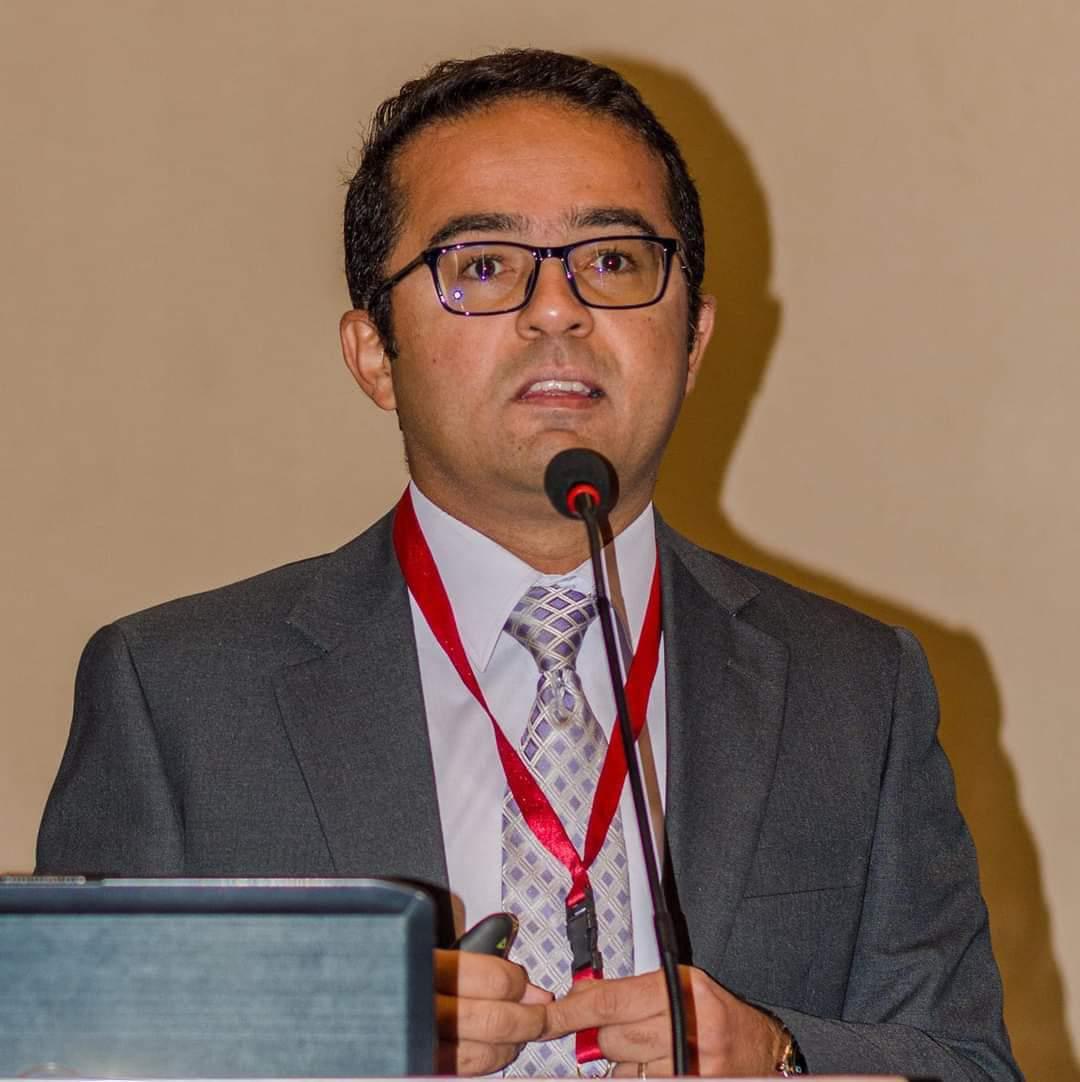Dr. Ahmed Adel Al-Omrigi
Assistant Professor of Cardiology and Vascular Diseases
About the doctor:
Dr. Ahmed Adel Al-Omrigi is an Assistant Professor in the Department of Cardiology at Cairo University’s Kasr Al-Ainy School of Medicine. He is considered one of the distinguished doctors in the treatment of cardiovascular diseases using advanced interventional catheterization techniques. In addition to his vast experience in treating congenital heart defects in adults, a field that requires advanced skills and deep experience in handling complex cases.
Dr. Ahmed currently holds the position of Head of the Cardiology Department at Al-Nass Hospital, where he supervises the treatment of patients and leads the medical teams in the hospital. He is also the Medical Director of the hospital, placing him in a leading position in his field across Egypt.
Specialties and Medical Services:
Dr. Ahmed Adel Al-Omrigi offers a wide range of diagnostic and therapeutic services in cardiology, including:
🔹 Electrocardiogram (ECG):
📝 Early diagnosis of any electrical activity disturbance in the heart using an ECG machine.
🔹 Echocardiogram (Echo):
🧠 Evaluation of heart functions, measurement of heart size, and detection of any problems in the heart valves or walls using an echocardiogram device.
🔹 24-Hour Blood Pressure Monitoring:
⏱️ Continuous blood pressure measurement over 24 hours to determine if the patient has high blood pressure or other disorders.
🔹 48-Hour Blood Pressure Monitoring:
⏳ A longer test to monitor blood pressure fluctuations accurately over two full days.
🔹 48-Hour Holter ECG Monitoring:
📈 Continuous recording of the heart’s electrical activity using a Holter device for 48 hours to detect arrhythmias.
🔹 1-Week Holter ECG Monitoring:
🗓️ Long-term monitoring of heartbeats over a week to diagnose ongoing arrhythmias.
🔹 Diagnostic and Therapeutic Catheterization:
🔬 A thin tube inserted through the blood vessels to access the heart and diagnose and treat coronary artery blockages.
🏥 Therapeutic procedures with catheterization, such as stent placement to open blood vessels and restore normal blood flow.
🔹 Coronary Artery Stents:
💡 Treatment of coronary artery blockage by inserting stents to ensure normal blood flow to the heart.
🔹 Exercise Stress Test:
🏃 A test performed while the patient exercises or exerts physical effort to detect any heart disorders during activity.
Academic Qualifications:
🎓 Ph.D. in Cardiology
Dr. Ahmed earned his Ph.D. in Cardiology from Cairo University’s Kasr Al-Ainy School of Medicine, one of the most prestigious medical universities in Egypt, with a focus on interventional catheterization and complex heart diseases.
Clinic Features:
🔹 Television Screen:
🛋️ To provide a comfortable waiting experience for patients.
🔹 Air Conditioning:
❄️ To ensure patient comfort in a pleasant environment.
🔹 Consultation Price:
💰 750 EGP.
Addresses:
Clinic in New Cairo:
🏙️ Trivium Business Mall, North 90th Street, New Cairo.
Clinic in Manial:
🏙️ 7 Saraya Street, Manial, Cairo.
Phone Number:
📞 0109 938 2929
Additional Services:
🔹 Phone Consultations:
📱 Available for initial advice or follow-up on medical cases.
🔹 Preventive Treatment:
🛡️ Offering advice on healthy lifestyle habits to prevent heart diseases.
Working Hours:
🕒 It’s preferable to call the clinic in advance to schedule an appointment or phone consultation.
Summary:
Dr. Ahmed Adel Al-Omrigi is an Assistant Professor in Cardiology and Vascular Diseases, one of the distinguished doctors in heart disease treatment using modern techniques like interventional catheterization. The clinic is equipped with the latest medical devices to ensure the best medical services for patients suffering from cardiovascular diseases.

